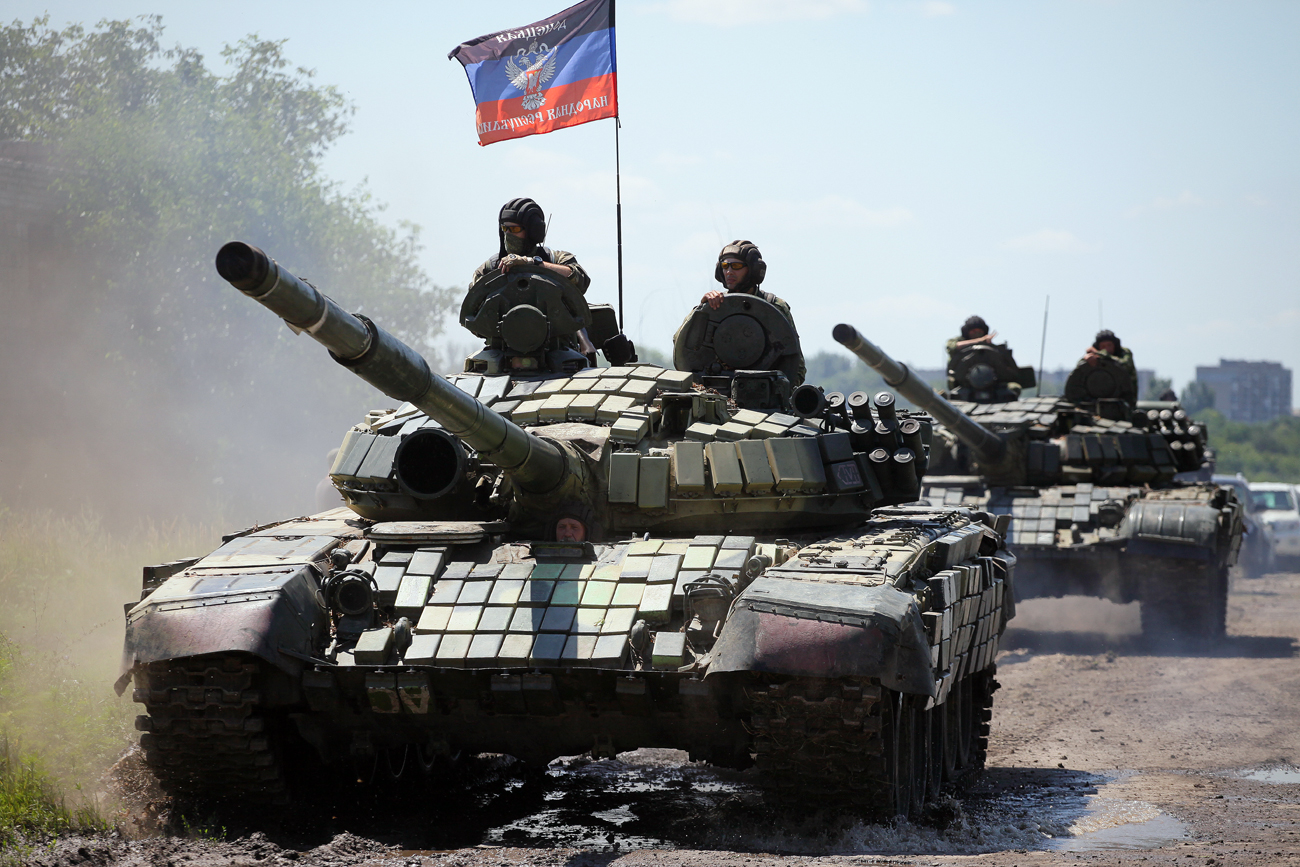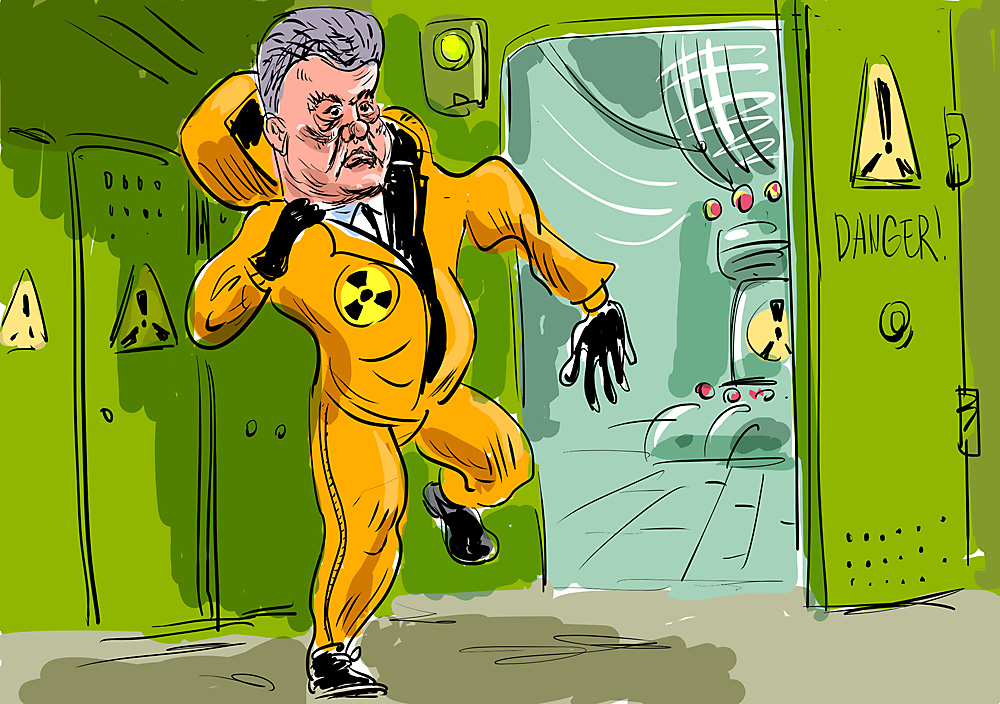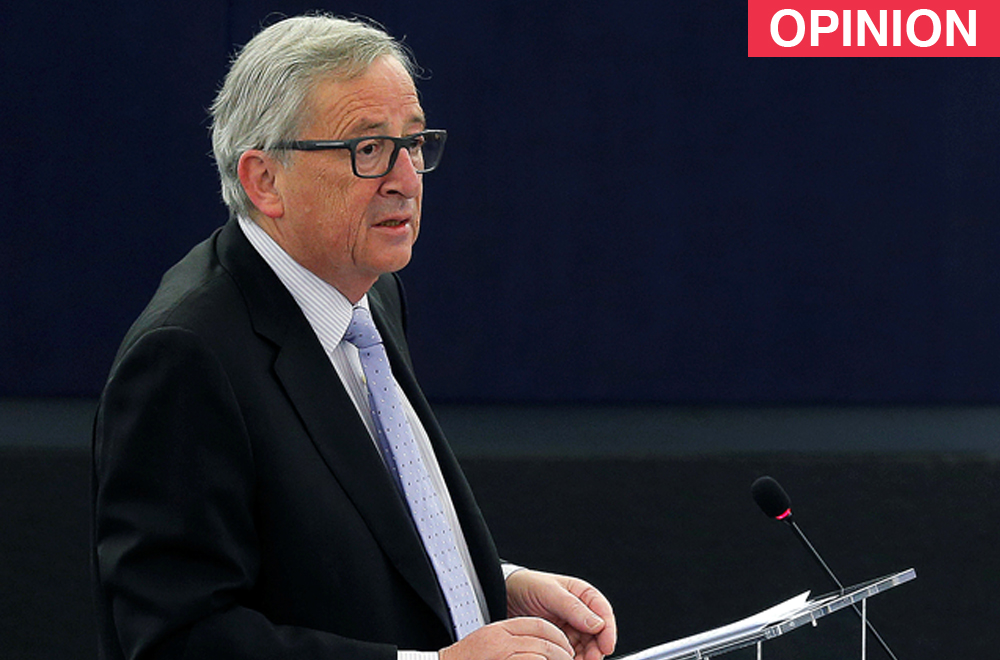The Minsk agreement and the reasons for current Russia-Ukraine tensions

Donetsk People's Republic troops unilaterally withdraw military hardware equipped with guns with a diameter greater than 100mm to a distance of 3km away from the frontline.
Mikhail Sokolov / TASSBefore this week, the consensus was that the war in Ukraine had become a “frozen conflict.” With that in mind, media and political figures turned their backs on the story and coverage was muted, except for OSCE reports from the frontlines, which were barely reported on. Thus, “out of sight, out of mind,” seemed to become the overwhelming attitude.
That has all changed now and the reason is simple. The Minsk II agreement signed in February 2015 cannot be implemented in its current form and all sides are fully aware of that. As a result, everybody is jockeying for position ahead of attempts to find a final resolution, which is likely to happen next month.
For Russia’s part, it’s pretty clear that the Kremlin desires an outcome where its rights to a “sphere of influence” in Ukraine and other non-NATO former Soviet states are respected. With that in mind, rhetoric from Moscow has attempted to paint the Kiev government as incompetent, corrupt and unable to solve its country’s myriad problems.
Thus, the Putin administration appears to be insisting that western powers cut a deal directly with them, bypassing the Ukrainian authorities.
Different strokes
Viewed from Kiev, things look very different. Leaders there are terrified that foreign support is drying up. They hear European countries talk about cancelling sanctions against Russia and calling for improved ties with Moscow. They are also aware of growing questions about U.S. foreign policy in Europe, led by presidential candidate Donald Trump. Ukraine’s biggest fear is that the west trades influence there for Russian cooperation in other disputes, such as Syria. Should this happen, to a large extent they can blame themselves for the repeated failure since 2014 to get a grip on their country’s rampant corruption.
The other parties to the conflict are the pro-Russian rebels in Eastern Ukraine, who currently hold de facto power in Donetsk and Lugansk. Their concern is that Moscow may trade its support for them if Kiev and the west recognize Russian jurisdiction in Crimea. Restoring those provinces to Ukraine will be fraught with difficulty, as the Ukrainian military has been responsible for shelling the local population over the past two years.
A flawed inception
To understand why Minsk II cannot work, we need to remember the circumstances in which it was signed. Kiev’s army was desperately trying to keep a foothold at Debaltsevo in the Donetsk Region in early February 2015 and leaders were scrambling to find a swift agreement to end the fighting. In desperation, Ukrainian President Petro Poroshenko signed a deal that he cannot implement because he doesn’t have sufficient control of his parliament to pass the necessary legislation (Rebel troops then seized Debaltsevo anyway). Back then, he promised that Kiev’s Rada would pass a resolution, allowing a temporary “Order of Local Self-Governance in Particular Districts” in the Donetsk and Lugansk regions by March, 13 2015, setting the scene for local elections in the disputed territories.
Seventeen months later and Poroshenko hasn’t moved a muscle because the result would probably be the collapse of his government. Another problem is that Minsk II includes a provision for an amnesty regarding crimes committed during wartime, which influential Ukrainian nationalist groups simply won't accept.
On the other hand, the rebels and Moscow probably aren't in favor of article nine, which calls for control of the state border throughout the entire conflict zone to be restored to the Ukrainian government. However, that doesn't need to happen until the day after the elections, which likely will never take place.
The next steps
Poroshenko signed an agreement in Minsk that he can’t deliver. He knows it and Russia is also fully aware of his predicament. This means that his administration’s only hope is to make foreign leaders believe that Russia is responsible for all the problems in his country and that it represents an imminent danger to Ukraine, and maybe other parts of Europe, too.
In Moscow’s case, the current saber-rattling is probably a show of force, designed to concentrate western minds on what Russia is capable of if pushed. Nevertheless, at a time when Putin has invested huge efforts in trying to restore relations with the west, it’s unfathomable that he’d now relinquish his political capital by making a grab for Ukrainian territory.
Furthermore, Friday’s surprise firing of Putin's chief of staff, Sergei Ivanov, suggests that the Kremlin is serious about mending fences. Ivanov was considered the most important “silovik” (politician with a background in the security or military services – RBTH) in the Russian government and was regarded as a hardliner on Ukraine. By contrast, his replacement, Anton Vaino, is a 44-year-old former diplomat with no track record in the military or security services. This suggests that “civilians” are starting to win the argument in Moscow.
The opinion of the writer may not necessarily reflect the position of RBTH or its staff.
Read more: Eurovision meets its Waterloo as Russia-Ukraine rivalry takes center stage>>>
All rights reserved by Rossiyskaya Gazeta.
Subscribe
to our newsletter!
Get the week's best stories straight to your inbox

